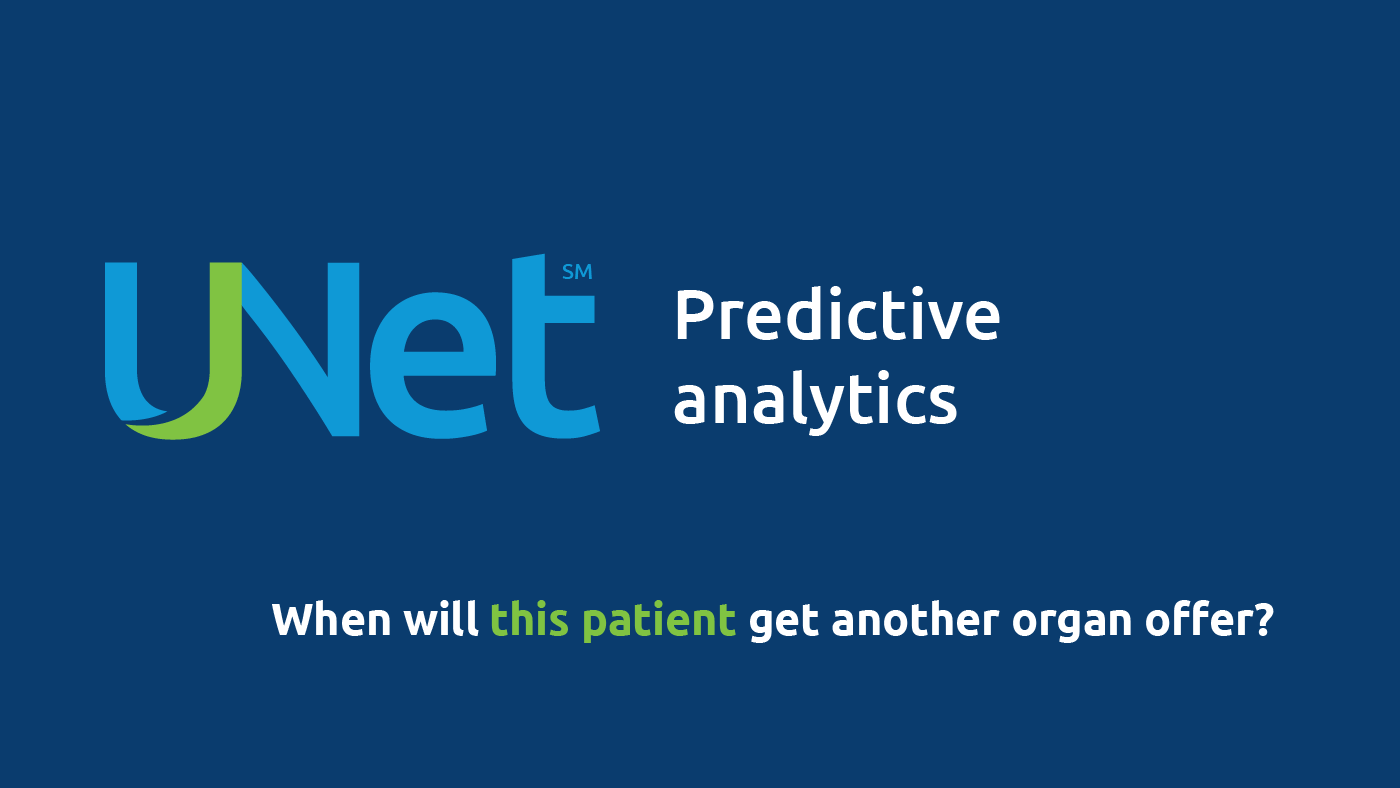Predictive analytics tool and national collaborative of over 80 transplant hospitals focused on increasing organ acceptance and utilization
United Network for Organ Sharing (UNOS), the non-profit that contracts with the federal government to serve as the nation’s Organ Procurement and Transplantation Network (OPTN), is driving efforts to maximize organ acceptance and use.
In its role as the OPTN, UNOS recently launched a predictive analytics tool, which adult kidney transplant programs can now use to augment decision-making and improve organ acceptance.
Concurrently, the largest cohort of transplant organizations involved in an OPTN collaborative convened in Orlando, Florida recently to kick off a project focused on improving organ offer acceptance rates.
The National Academies of Sciences, Engineering and Medicine (NASEM) recommended the use of predictive analytics as well as improving organ offer acceptance rates in their Feb. 2022 report on the nation’s organ donation and transplantation system.
In 2022, 19.14% of all organs successfully recovered from selfless donors were not transplanted into a recipient, a statistic that UNOS is working with the entire organ donation and transplant community to improve. The new efforts signify important actions on behalf of the over 104,000 patients currently on the transplant waitlist.
Predictive Analytics Tool
This new tool shows physicians the predicted impact that accepting or declining a donor kidney offer could have on their patient, supplementing data already available to find the best-fit organ. This resource, offered to all adult kidney transplant programs across the country at no charge, aims to support decision-making, ultimately increasing the number of kidney transplants.
Developed in collaboration with Accenture Federal Services, the tool is already providing physicians two key data points: the predicted length of time that their patient may wait for a similar kidney offer, and the patient’s likelihood of survival over the next three years without a transplant.
“When we can use technology to supplement sound clinical judgement, we are best serving patients waiting for the gift of life,” said UNOS CEO Maureen McBride. “The new predictive analytics tool will help support the transplant teams making critical decisions on behalf of their patients.”
Predictive analytics is the use of data, statistics and modeling to predict the likelihood of future outcomes. The NASEM report recommended using predictive data to improve organ acceptance rates in their 2022 recommendations.
“Accenture is proud to be involved in the design and development of predictive analytics models which promise to improve offer acceptance in decision support tools,” said Accenture Federal Studio Design Director Ben Cannon. “We appreciate the willingness of the OPTN leadership to engage in a build-test-learn approach to address this challenge and for their close collaboration with specialists from various disciplines across both organizations – data science, human centered design, behavioral science, and technology. We are excited to continue our work and scale the predictive analytics program.”
After a pilot phase that began in early 2022, UNOS used input provided by participating transplant programs to improve the tool before the national launch. An advisory panel will continue evaluating community feedback.
Offer Acceptance Collaborative
UNOS recently brought together transplant programs from a third of the country’s transplant hospitals to kick off the OPTN Offer Acceptance Collaborative in Orlando, Fla. The largest UNOS-led collaborative to date, this six-month effort focuses on improving responses to organ offers as well as defining and revising acceptance criteria.
This collaborative will also help programs prepare for the use of a new offer acceptance metric to evaluate transplant program performance. UNOS will begin using this metric as a component of OPTN transplant program performance monitoring in July of this year.
“If you look at the history of donation and transplantation, innovation is how we got here,” said Offer Acceptance Collaborative participant Deborah Maurer, who serves as Transplant Services Program Administrator at the University of Pittsburgh Medical Center. “It’s our obligation to keep innovating, not just the scientific or clinical practices, but also the quality improvement processes and practices. This collaborative is a perfect example of giving the community the opportunity and mechanism to drive that innovation.”
Organ offers are an integral part of the nation’s organ donation and transplant system, but acceptance rates vary across the United States. The NASEM report identified offer acceptance as a “key area for improvement for transplant centers.”
“UNOS is proud to convene transplant programs from across the country for this important collaborative project,” said McBride. “By strengthening our practices, constantly reevaluating what works as a community and asking tough questions about how and what we can do better, we can best serve the patients and families who rely on us.”

